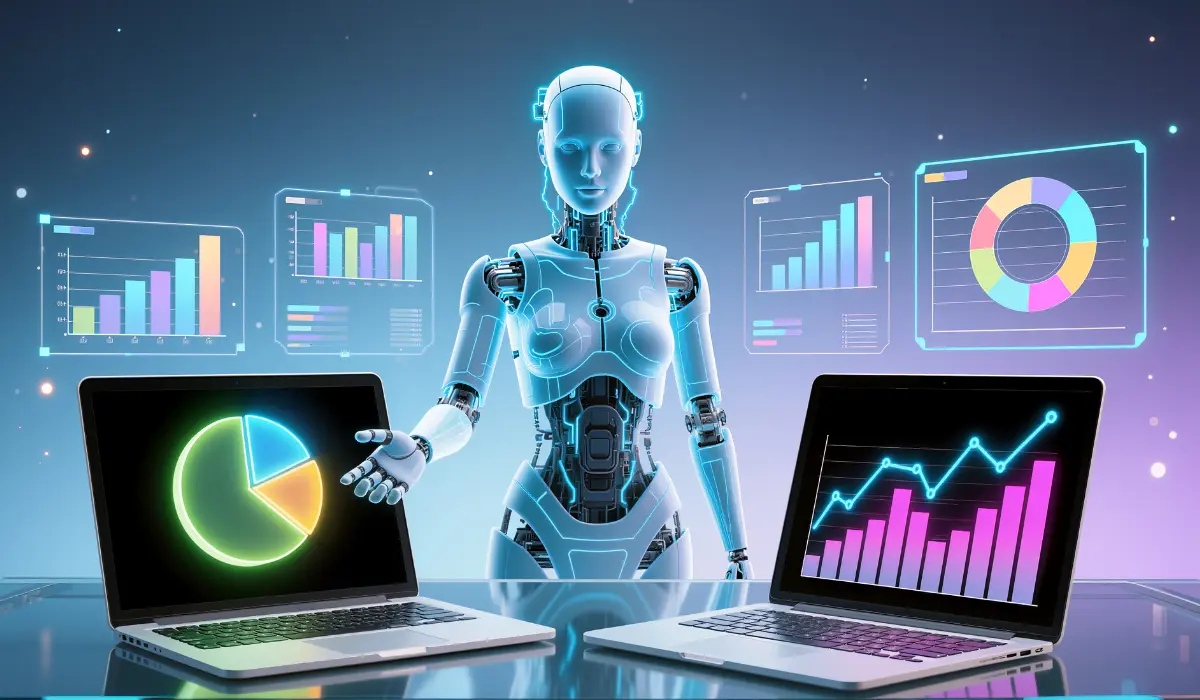Artificial Intelligence is reshaping how businesses operate, innovate, and grow. But when it comes to choosing between AI consulting and Generative AI consulting, the question isn’t about what they mean- it is about what you want to achieve. Do you want to enhance existing processes, boost efficiency, and make smarter decisions? Or are you ready to create new possibilities through AI-driven creativity and innovation? While AI consulting focuses on optimizing what already exists, Generative AI consulting empowers businesses to build what doesn’t yet exist. Understanding this difference helps you decide which approach will move your business forward.
What AI Consulting Does

AI consulting is like having a data strategist by your side. Businesses today sit on mountains of information, sales numbers, customer behavior, and operational data, but few know how to turn it into real value. That is where AI consultants step in. Take a retail store, for instance. They have years of data on seasonal trends and purchase patterns. Through AI consulting, experts analyze this data and develop predictive models that forecast which products will sell next. Maybe the model reveals that winter jackets will surge in demand while red shoes won’t move as fast. With these insights, the retailer stocks smarter, reduces waste, and increases sales.
The same applies in healthcare. A hospital aiming to lower readmission rates can use AI consulting services to analyze patient histories and identify those at risk. Doctors can then step in early, improving outcomes and saving costs.
That is the role of AI consultants; they do not just build tools, they guide businesses to make smarter, data-backed decisions. And when comparing generative AI vs AI consulting, remember: generative AI creates new content or ideas, while consulting helps you strategically apply AI to your business goals. Knowing this distinction can also help when you’re figuring out how to choose an AI consulting firm; look for one that not only understands algorithms but also your industry and objectives.
What Generative AI Consulting Does
Generative AI consulting goes beyond simply using AI tools; it is about helping businesses harness generative technologies strategically. A generative AI consultant studies your workflows, identifies where automation or content generation can add value, and designs custom solutions that enhance creativity and productivity.
For example, instead of just deploying a text or image generator, consultants guide a marketing team on integrating these tools into their existing process, from idea generation to brand voice alignment, ensuring every output feels authentic and on-brand. Similarly, for a design studio, consultants help set up systems where generative AI assists in brainstorming product concepts, speeding up the creative cycle without compromising originality.
In essence, generative AI consulting empowers organizations to scale creativity responsibly and efficiently, blending human imagination with intelligent automation.
How They Differ

AI consulting focuses on improving what already exists- optimizing processes, enhancing decision-making, and integrating AI into current systems to make them smarter and more efficient.
Generative AI consulting, on the other hand, is about innovation- helping businesses design entirely new solutions, automate content creation, and build unique experiences powered by generative models.
Think of it like cooking: AI consulting makes your kitchen more organized, you know what to buy, when to cook, and how to serve better. Generative AI consulting helps you create a brand-new recipe, something original that transforms the way you cook altogether. Both are valuable, but they serve different purposes.
Examples from Real Life
AI Consulting
A leading bank struggled with rising fraud cases among millions of daily transactions. AI consulting experts helped them analyze their transaction patterns and developed a fraud detection system powered by machine learning. The system automatically flagged suspicious activities, allowing the team to intervene quickly. The result? A significant drop in fraudulent cases, faster response times, and improved customer trust.
Generative AI Consulting
A growing startup was preparing for a major product launch but lacked the time and resources to produce engaging marketing content. With the help of generative AI consulting, they implemented AI tools that generated personalized social media posts, ad copies, and email content. The marketing team refined the outputs, and the campaign was ready weeks ahead of schedule. The launch saw better engagement and consistent brand messaging across all channels.
See the difference? AI consulting helps you optimize how you work, while generative AI consulting helps you create faster and scale creativity.
When to Choose Which
Prefer AI consulting if you need:
- Smarter decision-making
- Predictive insights
- Process optimization
- Automation
Prefer generative AI consulting if you need:
- Content or design creation at scale
- Faster innovation
- Personalized customer experiences
- Creative prototyping
Sometimes the smartest move is to combine both. Predict customer needs with AI, then respond with content generated by generative AI. That is when efficiency meets creativity, and magic happens.
Why Businesses Get Confused

Honestly, people mix them up because they both use AI. And yes, the line can blur. But thinking carefully about your goals clears it up. If your goal is decision-making and efficiency, go with AI consulting. If it’s creation and innovation, go generative.
Mixing them without a plan can waste money and time. Companies invest in generative AI expecting it to “solve everything.” It doesn’t. Without AI insights, generative AI might create the wrong content, target the wrong customers, or suggest ideas that do not fit reality. Planning is key.
Final Thoughts
AI consulting spans strategy, data readiness, model selection, integration, governance, risk, and measurement. It’s not only about optimization; it covers invention too.
Generative AI consulting focuses on leveraging GenAI models for content, workflows, knowledge ops, and product use-cases. It can support creation, but also contributes to optimization (e.g., agentic workflows that reduce cost/time).






